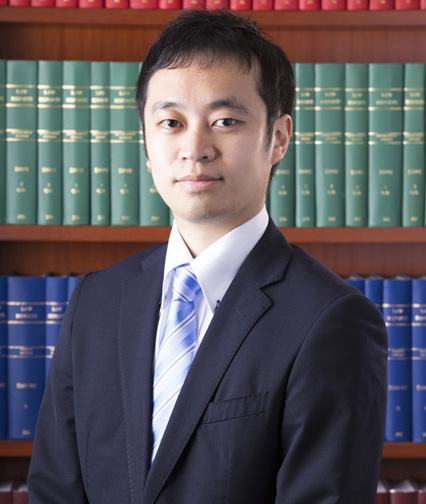Most people envisage that they have to plan their succession at some point in life and the most common means is leaving a will. Whilst a will allows a testator to distribute his assets according to his preference, it can only take effect upon the testator’s death.
Not many people will have contemplated the dreaded situation whereby they become mentally incapacitated and will not have complete control of their own affairs and assets. An accident, a stroke or the onset of mental illness (such as dementia or Alzheimer's disease) can leave us powerless to handle our own daily affairs such as managing one’s finances (e.g. operating bank accounts), paying bills or generally making welfare decisions. Mental incapacity may therefore not only be a concern to aging persons but it may also affect the younger generation.
A person who is mentally incapacitated can no longer legally or validly make decisions over his own affairs. With an Enduring Power of Attorney (EPOA), an individual can choose a trustworthy person (e.g. a family member or a close friend) to manage his financial affairs and to look after his general welfare if he later becomes mentally incapable.
In this article, we discuss the basics of an EPOA in the hope of raising awareness of its key role in facilitating one’s affairs in the unfortunate event of mental incapacity.
What is an EPOA?
Under the Enduring Powers of Attorney Ordinance (Cap. 501), an EPOA is a legal instrument which allows a person (the donor), while still mentally competent, to delegate legal authority by appointing an attorney(s) who will take care of his financial matters in the event that he becomes mentally incapacitated. It should be emphasised that an individual who is already mentally incapacitated will not be in a position to execute an EPOA and instead application to court will have to be made in order to deal with that individual’s financial affairs.
How does it differ from a General Power of Attorney?
Whilst a general power of attorney will cease to be effective when the donor becomes mentally incapacitated, an EPOA will continue to be effective and confer power on the donee to manage the financial affairs of the donor and shall cease to be effective upon the death of the donor.
How to make an EPOA?
- An EPOA must be in the prescribed form
For an EPOA to be effective, it must be made in the “prescribed form” set out in the Schedules to the Enduring Powers of Attorney (Prescribed Form) Regulation (Cap.501A of the Laws of Hong Kong).
- An EPOA must be signed by the donor before a registered medical practitioner and a solicitor
A donor must execute the EPOA before a registered medical practitioner and a solicitor. The registered medical practitioner must verify and be satisfied that the donor is mentally capable at the time of execution. The solicitor must certify that the donor appears to be mentally capable.
- Who can be attorney (i.e. donee) under the EPOA?
An individual attorney must have attained the age of 18 years and is not bankrupt. He must also be mentally capable. A trust corporation can be an attorney.
- Registration of the EPOA
Before the attorney or donee can exercise his rights conferred under the EPOA, the EPOA instrument must first be registered with the Registrar of the High Court of Hong Kong. The EPOA can be registered after the same has been executed by the donor.
- Revocation of an EPOA
An EPOA can be revoked by the donor any time while he is mentally capable. If an EPOA is executed and registered but then the donor recovers from his mental incapacity, he can apply to court to revoke such EPOA.
How can the donor safeguard his interests against potential abuse of the powers by the attorney under the EPOA?
The donor should consult legal advice to appreciate the extent and scope of the powers conferred upon his attorney under the EPOA. The donor can impose restrictions to limit the powers of the attorney(s) or to limit the access of the attorney to certain assets only. Further, the donor can nominate person(s) who have to be notified by the attorney before the attorney applies for registration of the EPOA.
What if I do not have an EPOA?
If there is no EPOA in place, a family member can engage a solicitor to apply to the Court under Part II of the Mental Health Ordinance (Cap. 136) to have the family members or professionals be appointed to deal with the financial affairs of the mentally incapacitated person. The procedure is more complicated and the costs involved are considerably higher. It is also possible that family members in a discordant family would fight over who should be appointed to deal with the financial affairs of the incapacitated person.
What are the benefits of an EPOA?
In summary, an EPOA has the following benefits:
- enables an individual to choose a dependable person(s) who will take care of his financial affairs if he becomes incapable of doing so;
- avoids expensive and potentially distressing court proceedings for the appointment of a trustee to attend to the individual’s affairs;
- provides an efficient and cost-effective way of administering the individual’s property; and
- alleviates the hardships and distress that may otherwise be suffered by the family of a mentally incapacitated person in managing his affairs without proper authorization.
Conclusion
With the advancement of modern science, technology and medicine continuing to increase the lifespan of humans, the risks of mental incapacity is increasing. Advanced and precautionary planning and utilization of the EPOA instrument would go some distance to alleviate the distress and anxiety suffered by our loved ones. We cannot stress enough that the key to good preparation for the future has nothing to do with the size of one’s assets; rather it depends on early action before it is too late.
Tel:(852) 3628 0170





